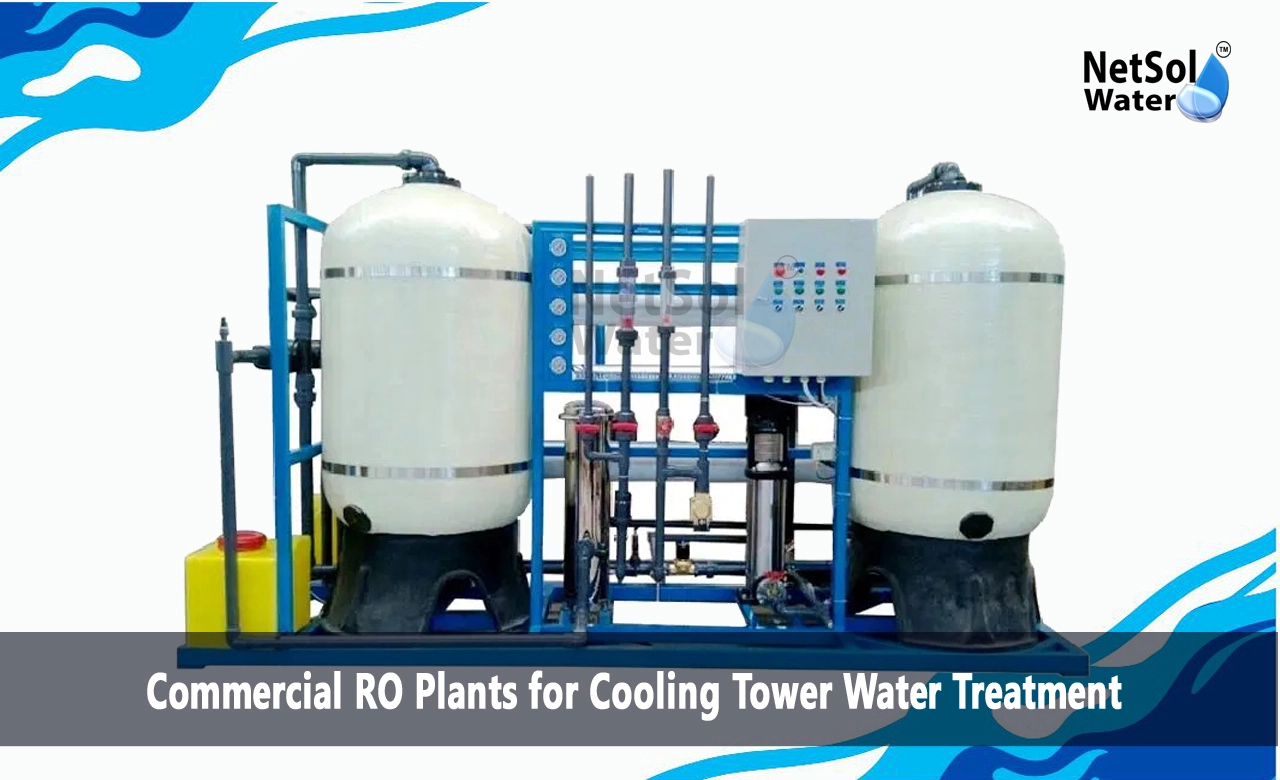Commercial RO Plants for Cooling Tower Water Treatment
Cooling towers are essential components in many industrial processes and buildings, rejecting surplus heat to provide essential cooling. However, their open-loop design exposes the circulating water to potential contaminants like suspended solids, dissolved minerals, and microorganisms. This makes cooling tower water treatment an important consideration for efficient long-term system operation and equipment protection. Commercial RO plant has emerged as an effective solution for producing high-quality cooling tower makeup water while reducing treatment chemical usage.
Issues with Conventional Treatment
Traditional cooling tower water treatment relies heavily on chemicals like biocides, anti-scalants, and corrosion inhibitors, which are introduced to control microbiological growth, mineral scale formation, and metal corrosion. However, this approach faces several challenges - chemical costs are significant, excessive bleed-off leads to high makeup water demands, concentration cycles are limited, and compliance with tightening environmental regulations on discharge is difficult. Additionally, health and safety risks from storing and handling hazardous chemicals cannot be ignored. A physical treatment barrier like RO can mitigate many of these drawbacks.
Benefits of RO Pretreatment
By utilising reverse osmosis as pretreatment for cooling tower makeup, virtually all dissolved inorganics like calcium, magnesium, chlorides and sulfates get removed alongside particulate matter. This high-purity permeate stream helps create a pure closed cooling loop where scaling and corroding species are minimised from the outset. Blow-down volumes have reduced dramatically since concentration cycles have risen with RO's high rejection rates. Simultaneously, disinfection demands drop as the membranes initially exclude most microbes. Overall, chemical treatment costs and discharge volumes shrink considerably.
RO System Design Factors
When deploying RO for cooling tower makeup, key design aspects include optimising membrane array size/configuration to balance recovery rates with crossflow prevention of fouling/scaling. Pretreatment using multimedia filters, water softeners or antiscalants may be needed depending on the makeup water characteristics. Energy recovery devices enhance energy efficiency. Polyamide thin-film composite membranes are typically specified for their superior organics rejection and chlorine tolerance. Interlocked cleaning regimes and preservative flushing are essential for maintaining long-term membrane performance.
Hybrid Treatment Approaches
In many cases, combining RO with measured chemical dosing and other technologies enables a more comprehensive treatment program. For example, intermittent chlorine addition may still be employed to control biogrowth in the cooling loop despite the RO barrier. Similarly, anti-scalants or corrosion inhibitors can be used in optimised doses to target any residual concerns. Sidestream RO filtration, ozonation, electrodialysis and ultraviolet disinfection often accompany primary RO plants for hybrid robustness.
Sustainability and Economics
RO-based cooling tower treatment aligns with industrial sustainability trends - lower chemical consumption, reduced water wastage through higher cycles of concentration, decreased discharge volumes, lower greenhouse gas emissions, and less hazardous waste generation. While the capital and operating costs of an RO system are higher initially, lower chemical and waste management expenses combined with operational benefits like minimising downtime make it economically attractive over the long run, especially for large cooling loads.
Conclusion
Reverse osmosis technology provides an effective physical barrier approach for controlling contaminant ingress when producing cooling tower makeup water. By removing dissolved minerals, particulates and microbes upfront, RO plants enable cleaner cooling water circulation with reduced chemical treatment requirements. Hybrid implementations combining RO with optimised chemical dosing deliver comprehensive treatment for efficient, sustainable, and environmentally responsible cooling tower operations across diverse industries. As regulations tighten and water/chemical costs rise, commercial RO is poised to become mainstream for cooling tower water treatment.
To explore customised commercial RO plants, Industrial RO plants, ETP or STP solutions for your needs in your areas and nearby regions, contact Netsol Water at:
Phone: +91-965-060-8473, Email: enquiry@netsolwater.com



